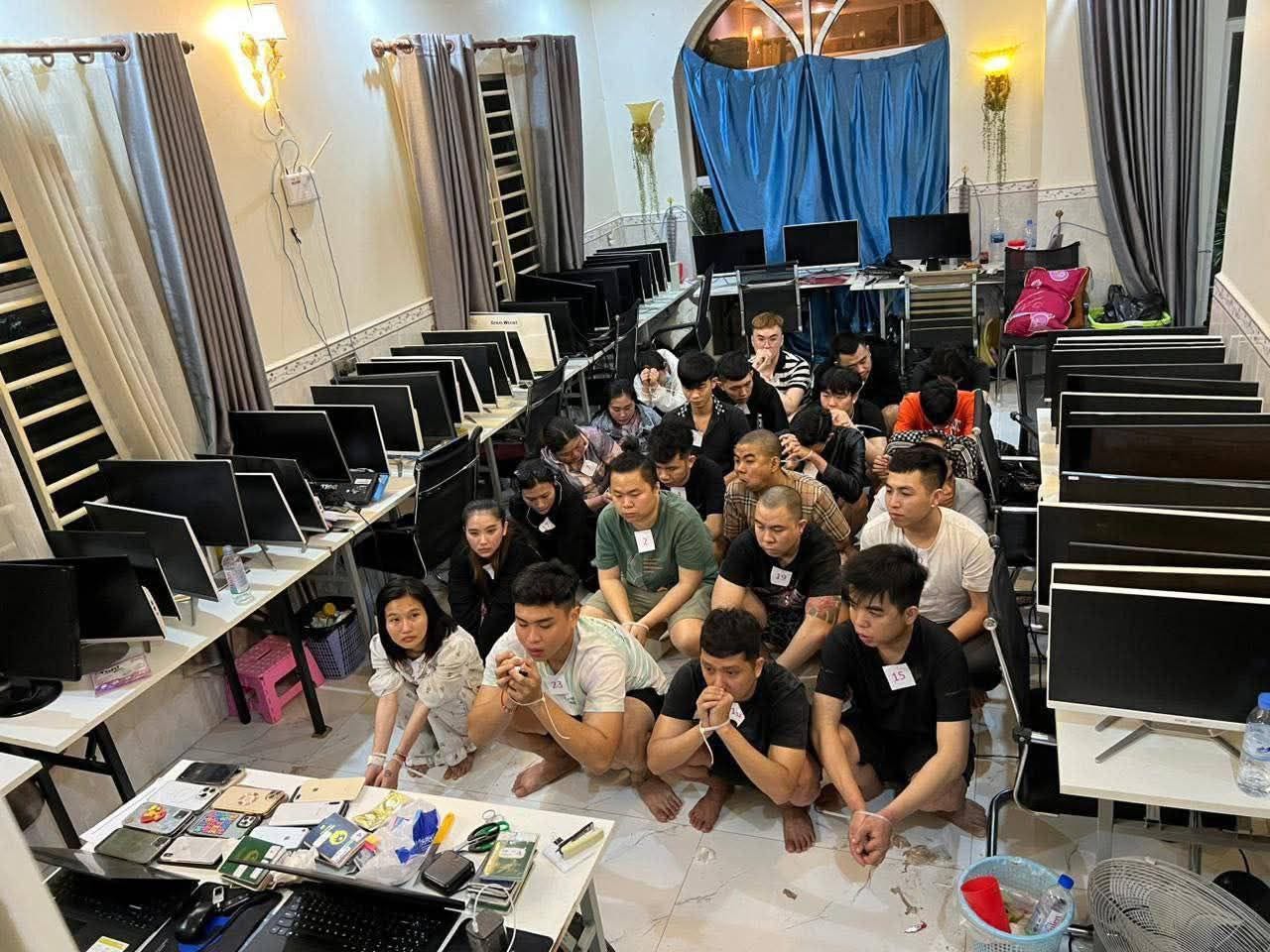A Crackdown or a Performance?
Cambodia’s Anti-Scam Operation Triggers Internal Migration of Scam companies
On July 15, Cambodian Prime Minister Hun Manet convened a national meeting with provincial governors, police chiefs, and gendarmerie commanders—the key figures in Cambodia’s law enforcement hierarchy—to announce a sweeping crackdown on cyber scams. According to official data, at least 12 provinces, including the capital Phnom Penh, launched operations after the meeting.
At first glance, the crackdown resembled a storm. On July 16 alone, Phnom Penh police arrested 100 people, Poipet detained 271 Indonesian nationals, and Kratie reported 312 arrests.
But the storm quickly began to feel more like a stage play.
On July 18, police in Svay Rieng province raided a hotel and apartment complex in Bavet—a notorious hub for online gambling and scam compounds near the Vietnamese border. But rather than targeting the well-known scam compounds like Titan King and Le Macau, police instead stormed a legitimate hotel, detaining individuals who failed to present passports. Heavily armed officers raced past the real scam centers, conducting “raids” next door.
This scene played out similarly across other provinces: in O'Smach, Pursat, Phnom Penh, and Sihanoukville. In O'Smach, for instance, where the U.S.-sanctioned tycoon Ly Yong Phat operates a massive scam complex, no inspections were carried out. Police in Oddar Meanchey arrested 103 people—but mostly from small hotels, not the major compounds.
Meanwhile, in scam hotspots like Chinatown and Jinbei in Sihanoukville, police didn't conduct any checks. Instead, they intercepted 9 people on the Phnom Penh–Sihanoukville Expressway, all accused of trafficking low-level scam workers from Sihanoukville to Chrey Thom —another infamous scam hub. These transfers happen daily, and the authorities could have intervened long ago.
In Phnom Penh, where countless scam compounds operate, police focused on small rowhouses and minor raids—just enough arrests to meet quotas.
In essence, this "crackdown" was mostly a performance.
The orchestrator? Hun Manet. Notably absent from the operation’s narrative is former Prime Minister Hun Sen, who used to post daily on Facebook or give public speeches, especially on border issues with Thailand recently. He has remained silent on this latest anti-scam campaign.
Although Hun Manet is Hun Sen’s son, their political agendas don’t always align. Manet may feel compelled—whether by internal pressure or international scrutiny—to show he’s addressing cybercrime. But in Cambodia, the real power still lies with Hun Sen.
Figures like Ly Yong Phat in Koh Kong and O'Smach, Kok An in Poipet, and Try Pheap in Pursat—owners of major scam compounds—are considered Hun Sen loyalists. Without his explicit order, no authority dares to touch them—not even Hun Manet.
This creates a strange dynamic: provincial governors and police chiefs feel compelled to “submit homework” by conducting token raids and arrests. But they avoid touching any high-profile, politically connected scam centers. Instead, they target scattered apartments, rowhouses, or hotels where foreign nationals without passports can be easily detained.
Once arrested, those people who are smart enough will pay bribes—often thousands of dollars—for release. The police, in turn, pocket the money and let them go. Many of those detained have committed no crime; they were simply caught in the wrong place, used to pad arrest statistics.
The inconsistencies in official numbers reflect this showmanship. For example, Phnom Penh authorities claimed to have arrested 145 individuals on July 17–18. But daily tallies suggest 32 were arrested on the 17th and 133 on the 18th, totaling 165.
The numbers don’t add up—but they don’t have to. Accuracy was never the point.
As a result, those operating scams from apartments and rowhouses now feel increasingly vulnerable. The only truly "safe" spaces are the large, protected scam compounds—ironically untouched by this campaign. So while Cambodia claims to crack down on online scams, it's actually targeting everywhere except the scam compounds themselves.
In that sense, this might be better described as a “Non-Compound Cyber Scam Crackdown.”
Online posts suggest many scam syndicates are relocating to the third phase of "No.8 compound," a compound controlled by Prince-affiliated factions near the Vietnam border. Construction there is ongoing.
Though these companies and groups are not officially part of Prince Group, many are led by individuals who hold shares in the Prince—forming what is commonly referred to as the “Prince-affiliated network.”
Prince-affiliated factions, in addition to operating Jinbei 1–6 in Sihanoukville, now has compounds numbered from NO.1 to No. 8 compound across Cambodia. During the infamous “918 crackdown” in 2022, many scam operations also sought refuge in Prince-controlled areas.
Comments from Chinese social media users wrote: “It’s a setup. They’re herding smaller operations into their own big compounds. That way, Boss Hun can make more money. Why don’t they raid Prince’s compounds with tens of thousands of people?”
Another noted: “The border compounds are ready. Consolidating them makes it easier to control.”
Some observers now believe that following this wave of action, Cambodia’s decentralized scam operations—the non-compound scam cells—will disappear, replaced by tightly guarded operations under elite protection.
As one analyst put it: “I think it's a feature of Cambodia's criminally,It always ends up in a small set of hands doing it all.”

